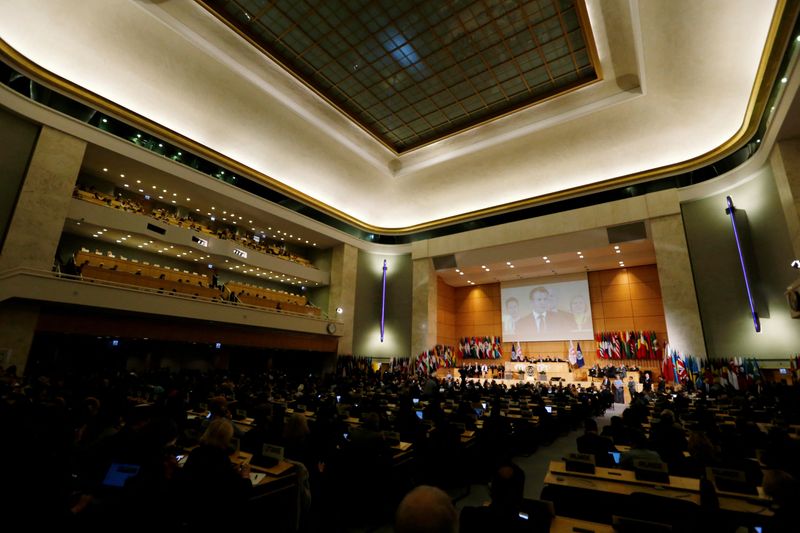By Emma Farge
GENEVA (Reuters) - A group of 10 global trade unions filed a complaint on Friday against Israel with the International Labour Organization, alleging that its treatment of Palestinian workers since the Gaza war began had breached a global treaty.
Criticism of Israel's treatment of Palestinian workers, under scrutiny for decades, has increased at the Geneva-based U.N. labour body since the war started on Oct. 7.
The complaint summarised in a statement sent to journalists focuses on Israel's exclusion of some 200,000 Palestinian migrant workers, which Israel justifies on security grounds. It claims unpaid wages and other compensation for them and other Palestinian workers which the unions say could amount to billions of dollars.
"The sudden unemployment of Palestinians working in Israel has left hundreds of thousands destitute," said Stephen Cotton, general secretary of the London-based International Transport Workers' Federation, one of the unions that signed the complaint.
"Israel must comply with its international legal obligations and ensure these workers receive their owed wages immediately," Cotton said.
Israel has blamed its treatment of Palestinian workers from Israel on Hamas, saying the militant group had targeted commuter routes on and after the Oct. 7 attacks in which 1,200 people were killed and over 250 taken hostage.
Israel's subsequent assault on the Hamas-governed enclave has since killed over 40,000 Palestinians, according to the local health ministry, while displacing nearly the entire population of 2.3 million, causing a hunger crisis.
The trade unions who filed the complaint say they represent some 207 million workers in over 160 countries across a range of sectors including catering, agriculture and industry.
Other trade union groups signing onto the complaint include Education International and the Building and Wood Workers' International.

The groups allege violations of the 1949 Protection of Wages Convention which Israel has ratified along with around 100 other countries, according to the U.N. agency's website.
Under ILO rules, the body can set up a so-called tripartite committee composed of government and employers' and workers' groups to examine alleged violations of the convention. This could eventually lead to an investigation and even sanctions, as occurred in Myanmar in the 1990s.